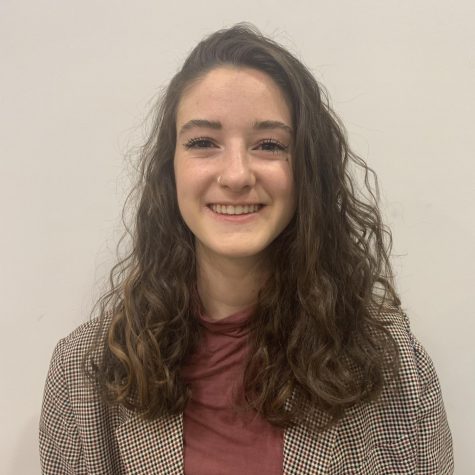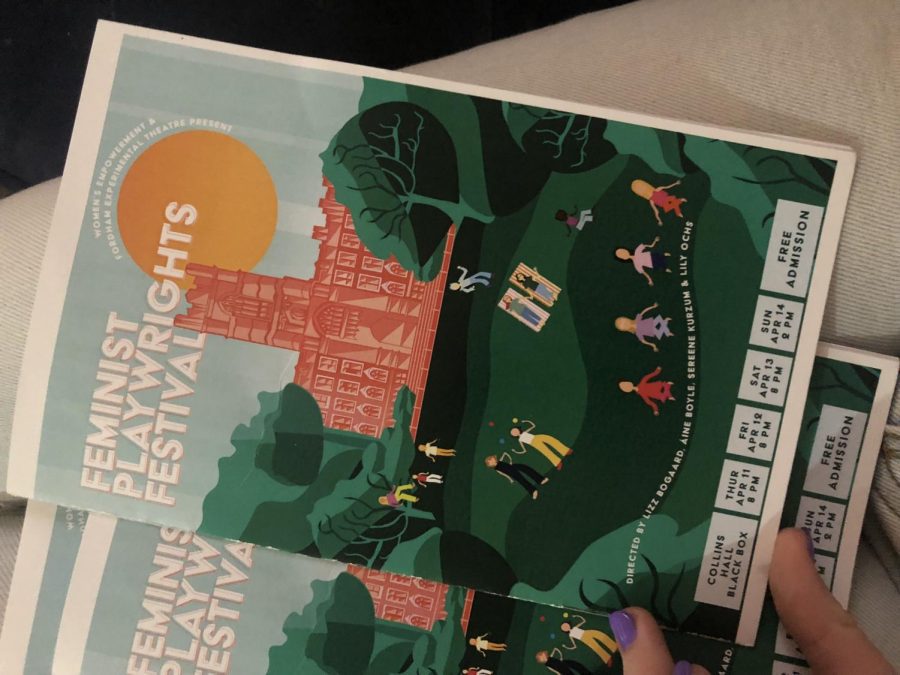FET Empowers Women With Feminist Playwright
This April, Fordham Experimental Theatre (FET) teamed up with Women’s Empowerment to present the 2019 Feminist Playwright Festival. The show, directed by Lily Ochs FCRH `22, Seerene Kurzum FCRH `22, Áine Boyle FCRH ‘19 and Lizz Bogaard FCRH`19, consisted of several small skits and played for three nights at Fordham’s Blackbox theatre.
While Women’s Empowerment usually presents a show independent of FET, it felt the club had been fairly male dominated in the past and wanted to give a voice to women who would not typically be involved.
They accomplished this feat with a cast almost entirely comprised of women (only two men had parts). However, the profound successes of the play transcended the genders of its participants.
It was not the gender of the actors that that made the show so enthralling, but the zeal with which they captured feminine issues and triumphs. Similarly, while evidently geared towards female students, the show’s use of humor and raw emotion made it enjoyable and relatable for audiences of all types.
As stated in the directors note, Women’s Empowerment wanted to explore stories of “intergenerational female relationships, trauma, and forgiveness, gender dysphoria, women loving women, clowns loving women, bilingualism and identity sexuality and the college experience.”
The first act, directed by Boyle, features a variety of student-written poems and plays and poses a serious inquiry into the feminine identity and the ways in which it intersects with sexuality, gender identity and ethnicity.
Maggie Rodriguez, FCRH ‘20 put on a spectacularly powerful performance, delivered partially in English and partially in Spanish in what she said was an effort to “negotiate between identities, figuring out how being a white Hispanic woman fits all together.” Her spoken word poem, while commenting on the difficulty of balancing these diverse facets, was wonderfully coherent.
Maggie Burzynski, FCRH ‘21 wrote the next piece titled, “My Family Tree,” a true account of conversations she has had with female family members, including her mother, sister and grandmothers. These women had all experienced some sort of emotional or physical trauma that in turn impacted their relationships with one another.
Burzynski describes the play “as a representation of the hardships of womanhood but also of the strength and beauty inherent in women and our struggles.” At the end of “My Family Tree,” a particularly profound moment occurs in which these women wonder whether they had caused trauma in the lives of others or had this trauma inflicted upon them. The ability of women to be both the victim and the culprit is articulated beautifully in this moment, as the family realizes that both are true.
Calvin Swindal FCRH `22 wrote and performed “Screens,” a poem about his identity as a transgender man. In it, people chastise him for wearing “a screen,” a metaphor for his life prior to transitioning, questioning his new external identity. The poem is a raw and emotional look into the failure to accept and misconceptions of transgender people and how difficult these judgments can be to answer and live with.
The second act of the Feminist Playwright was a longer and more lighthearted play written by Ochs, Kurzum and Bogaard titled “Common Sense.” The comedic, absurdist tale details the journey of a young writer who, despite the awkward and inappropriate advances of a male coworker, finds her voice.
The play utilized the common and relatable experience of enduring, unwanted attention while simultaneously poking fun at toxic masculinity.
While a mish-mash of people and narratives, there was one unifying thread in the playwright: feminism is a framework in which all people can find a place.

Editor in Chief for Volume 103
Culture Editor for Volume 101, Volume 102.
Rachel Gow is a junior at Fordham College at Rose Hill, majoring in Journalism...









































































































































































































